18 Trailblazing Black Entrepreneurs and Leaders To Honor For Black History Month
- General Updates
-
Feb 02
- Share post
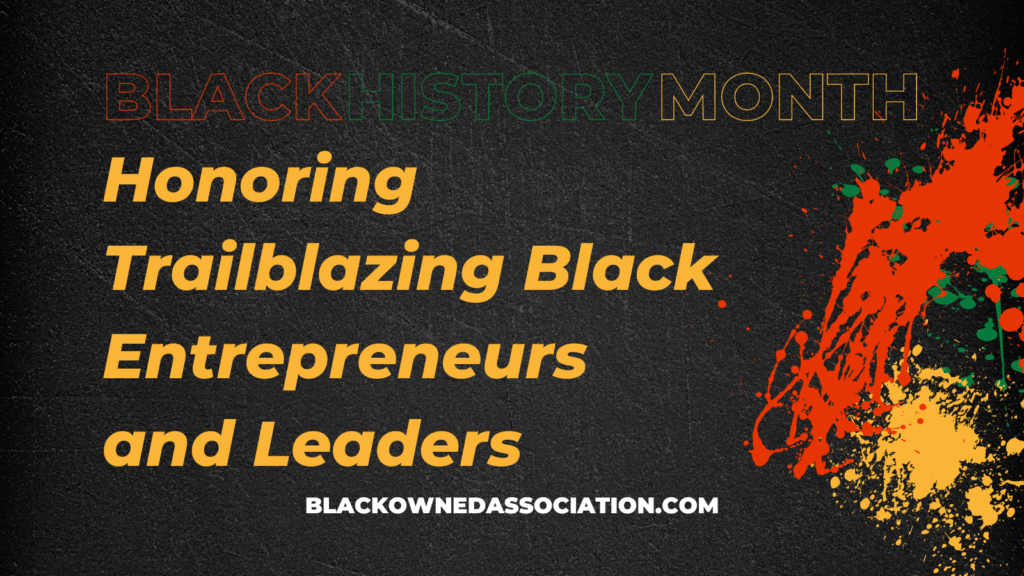
Here are 18 trailblazing black entrepreneurs and leaders to honor for Black History Month.
1. Jan E. Matzeliger
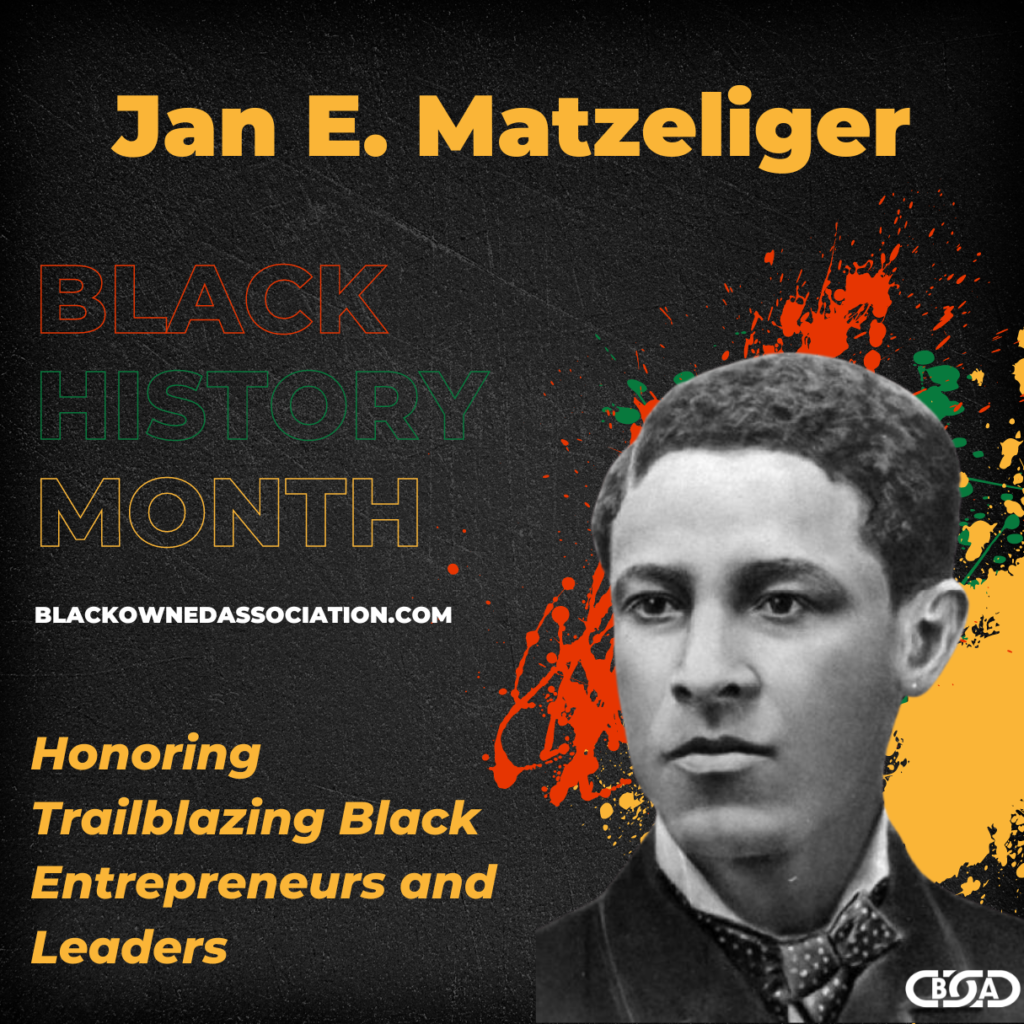
Jan E. Matzeliger was a Haitian-Dutch inventor who lived in the late 19th century and made a significant contribution to the shoe industry. Matzeliger was born in Paramaribo, Suriname, in 1852 and immigrated to the United States in the 1870s. He was an inventor by trade, and his passion for innovation led him to develop a revolutionary machine that changed the shoe industry forever.
Matzeliger’s invention was the first automatic lasting machine, which significantly reduced the time and labor required to produce shoes. Prior to his invention, the process of making shoes was incredibly time-consuming and labor-intensive. Each shoe had to be lasted (the process of stretching and shaping the upper part of a shoe onto a last, which is a wooden mold of a foot), by hand. This process was slow and tedious, and the shoes produced were often of poor quality.
Matzeliger’s machine automated the lasting process, making it much faster and more efficient. The machine could last up to 700 shoes in one 9-hour shift, compared to the 50 shoes that could be lasted by hand in the same amount of time. This reduction in production time meant that shoes could be produced more quickly and at a lower cost, making them more affordable and accessible to a wider range of people.
The impact of Matzeliger’s invention was immediate and far-reaching. The shoe industry in the United States was transformed, and the country became a major shoe producer, exporting shoes to other countries. Matzeliger’s machine also had a significant impact on the global economy, as it allowed for mass production of shoes, which increased their availability and affordability for consumers.
In addition to his invention, Matzeliger was a philanthropist, and he used his success to help others. He was well-loved in his community, and was known for his generosity and kindness. Matzeliger died at a young age, at just 37 years old, but his legacy lives on through his invention and the impact it had on the shoe industry and the world.
Jan E. Matzeliger was a visionary inventor who made a lasting impact on the shoe industry and the global economy. His invention of the first automatic lasting machine revolutionized the way shoes were produced, making them more affordable and accessible to a wider range of people. Matzeliger’s contribution to the shoe industry will always be remembered as one of the greatest innovations in modern history.
2. Dr. Charles Richard Drew
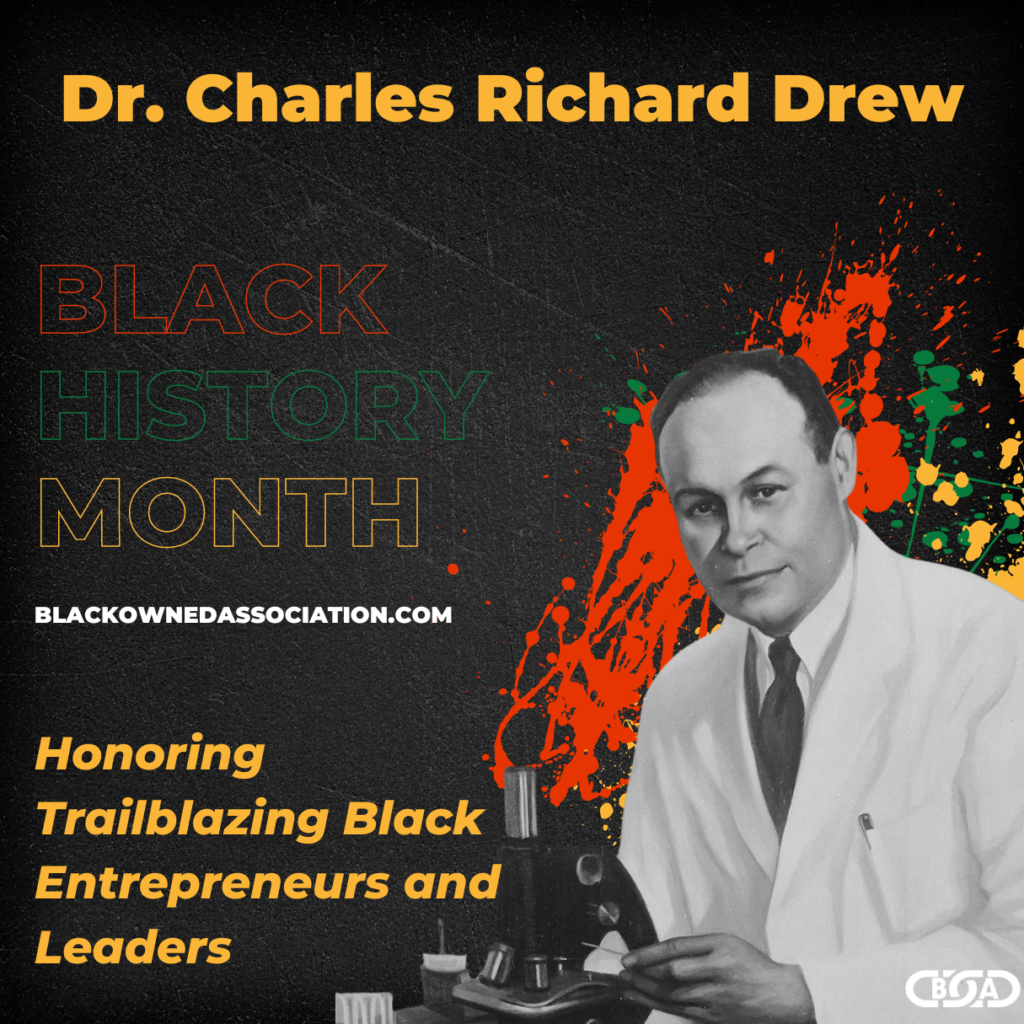
Dr. Charles Richard Drew was an American physician, researcher, and educator who made a significant contribution to the field of medicine in the 20th century. He is best known for his pioneering work in blood banking, which revolutionized the way blood was stored and transfused.
Drew was born in Washington, D.C., in 1904, and he showed a talent for science and medicine from a young age. He went on to study at Amherst College, where he excelled in his studies, and later earned his medical degree from McGill University. After completing his education, Drew became interested in the field of blood transfusions, and he dedicated his career to improving the way blood was collected, stored, and transfused.
In the 1930s, Drew was hired by the American Red Cross to develop a national blood bank program. He quickly realized that the current methods of storing blood were inadequate, and he began to develop new techniques for preserving and transporting blood. He discovered that by separating plasma (the liquid part of blood) from the red blood cells, he could extend the shelf life of blood and make it possible to store it for longer periods of time. This was a major breakthrough, as it made it possible to transport blood over long distances and to have a reliable supply of blood available for emergency transfusions.
Drew’s work with blood banking also made it possible to save countless lives during World War II. When the war broke out, Drew was instrumental in organizing blood drives and setting up blood banks to supply soldiers with the blood they needed. His work helped to save thousands of lives and was a major factor in the success of many military operations.
Even though he had many achievements, Drew faced challenges and discrimination throughout his career. He was an African American in a time when segregation was still prevalent in the United States, and he encountered discrimination and racism in the medical field. In the face of these obstacles, he continued to work tirelessly to improve the field of blood banking, and his achievements were recognized by his peers and the medical community.
Drew died in 1950, at the young age of 46, but his legacy lives on. He is remembered as a pioneering figure in the field of medicine, and his contributions to the development of blood banking have saved countless lives and continue to benefit people around the world.
Charles Richard Drew was a visionary physician and researcher who dedicated his life to improving the field of medicine. His pioneering work in blood banking revolutionized the way blood was stored and transfused, and his contributions have saved countless lives and continue to benefit people around the world. He will always be remembered as a true hero of modern medicine.
3. Maggie Lena Walker
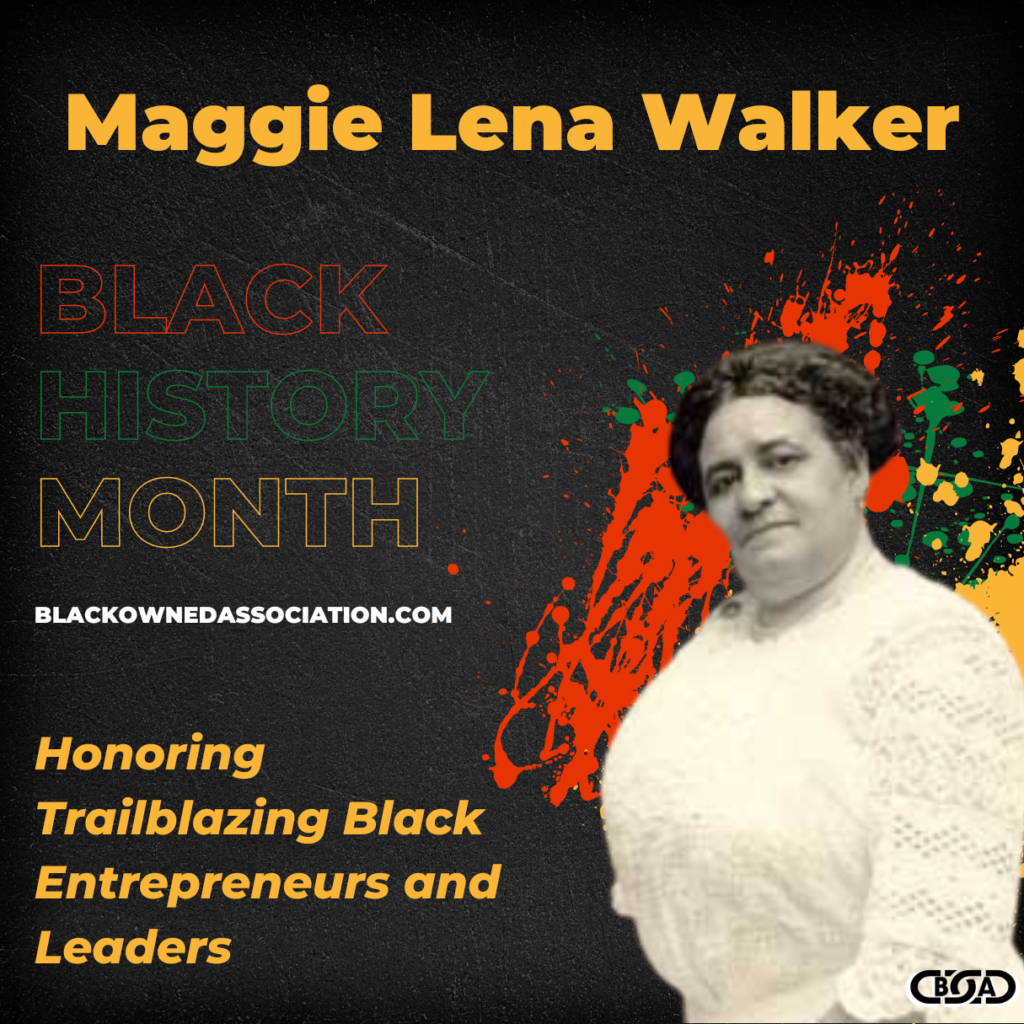
Maggie Lena Walker was a pioneering businesswoman, community leader, and civil rights activist. She was born in Richmond, Virginia, on July 15, 1864, and grew up in a time of great change and upheaval in the United States. Even with facing discrimination and limited opportunities as an African American woman, Walker rose to become one of the most influential figures of her generation.
At the age of just 14, Walker went to work as a teacher to help support her family. She quickly realized that the lack of financial resources and opportunities in her community was a major barrier to progress, and she began to work towards finding solutions. In 1902, she founded the St. Luke Penny Savings Bank, the first bank in the United States owned and operated by African Americans. The bank provided loans and financial services to members of the African American community in Richmond, helping to build wealth and stability in the area.
In addition to her work in finance, Walker was also an active and vocal advocate for civil rights and social justice. She used her platform and her financial resources to support the National Association for the Advancement of Colored People (NAACP), and she was a strong voice in the fight against segregation and discrimination. She also worked to improve the lives of women and children in her community, advocating for better education, health care, and working conditions.
Even with her many achievements, Walker faced significant challenges and obstacles in her life. She lost her husband at a young age, and she struggled with health problems throughout her life. Although there were setbacks, she remained determined and focused, and she continued to work tirelessly to improve the lives of those around her.
Today, Walker is remembered as a trailblazer and a visionary, and her legacy continues to inspire people of all ages and backgrounds. She was a leader who saw the potential for change and worked tirelessly to make it a reality, and her impact on the African American community and the nation, as a whole, cannot be overstated.
Maggie Lena Walker was a remarkable woman who defied the odds to become a leading voice for progress and justice. Her work in finance, activism, and community building has left a lasting impact, and she remains an inspiration to all who seek to make a difference in the world.
4. Booker T. Washington
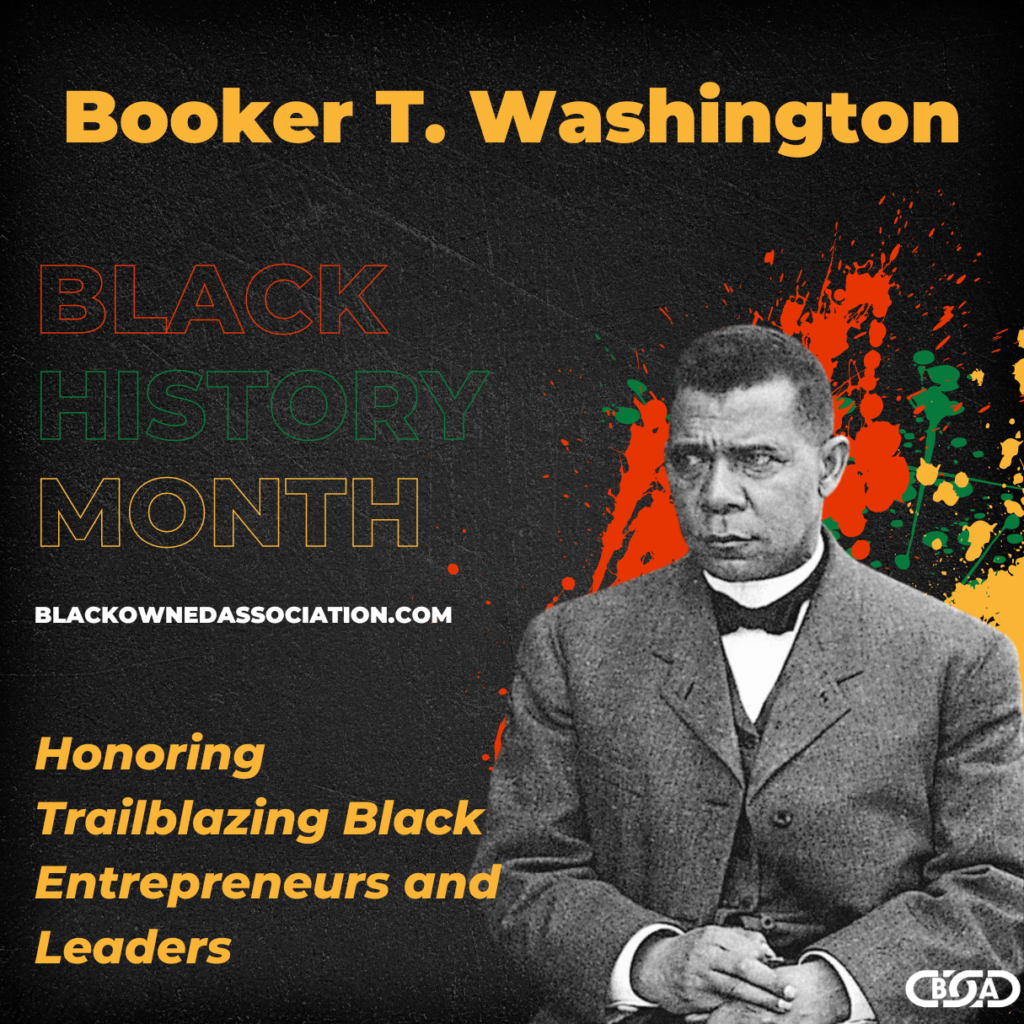
Booker T. Washington was an American educator, author, and leader who played a significant role in the African American community during the late 19th and early 20th centuries. He was born into slavery in Virginia in 1856, but after the Civil War, he worked hard to educate himself and eventually went on to become the first leader of the Tuskegee Institute, a historically black college in Alabama.
Washington was known for his belief in practical education and industrial training. He believed that African Americans could achieve economic success through hard work and entrepreneurship, rather than through political activism. He was a strong advocate for African American businesses and encouraged African Americans to invest in their own communities.
Washington was also a prominent figure in American politics. He was invited to the White House by President Theodore Roosevelt and was a sought-after speaker on racial issues. He was also one of the first African Americans to receive an invitation to dine at the White House, a moment that was seen as a symbol of progress for African Americans in the United States.
Despite his success, Washington faced criticism from some African American leaders who felt that he was not doing enough to address the social and political issues faced by the African American community. Some felt that he was too willing to compromise with white Americans and that he was not a strong enough advocate for the rights of African Americans.
Regardless of the criticism, Washington remains a significant figure in American history. He was a trailblazer for African American education and business, and his legacy continues to inspire African Americans today. He was a visionary who believed that education and hard work could help African Americans overcome the barriers of racism and discrimination.
Booker T. Washington was a remarkable leader who played a crucial role in the African American community during a time of great change and upheaval. He was a strong advocate for education and economic empowerment, and his legacy continues to inspire and influence African Americans today.
5. Dr. David Satcher
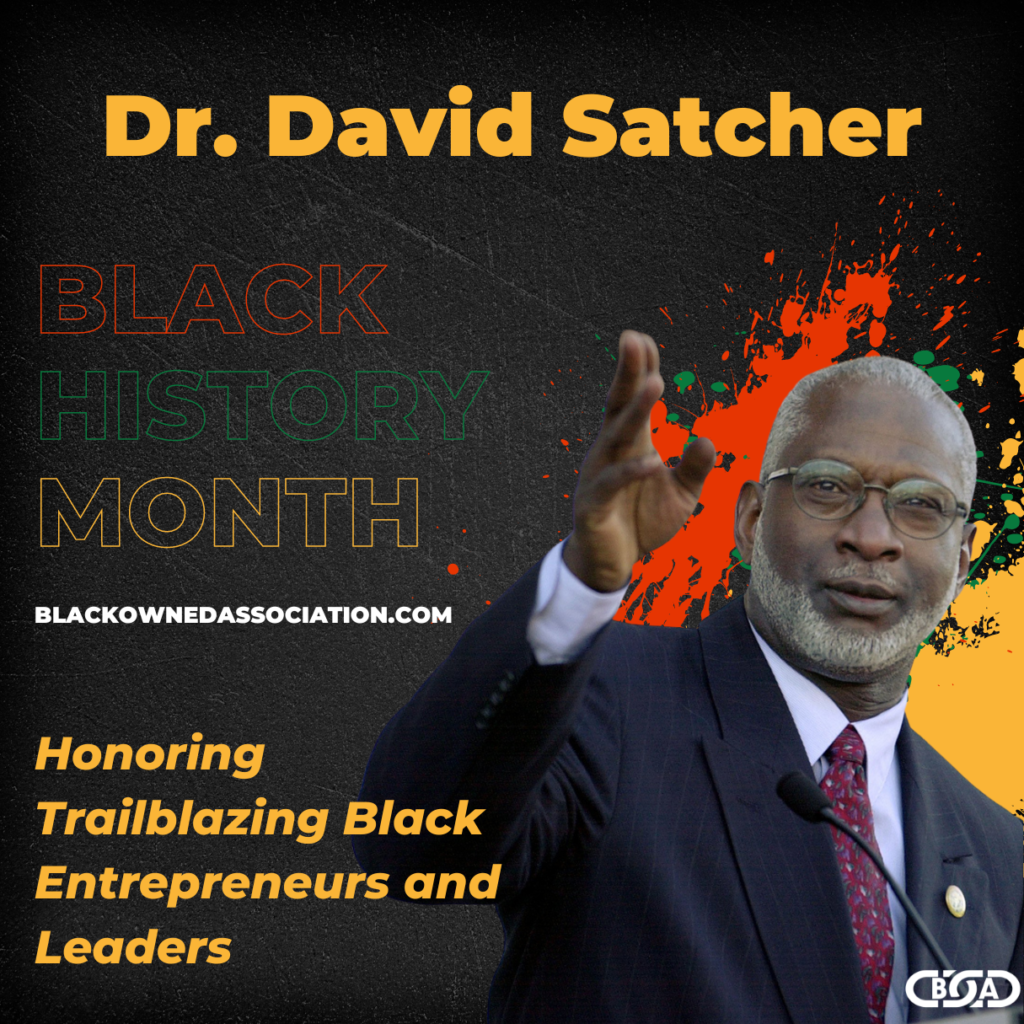
Dr. David Satcher is a renowned physician, public health administrator, and researcher who has made significant contributions to the fields of medicine and public health. Born on March 2, 1941, in Anniston, Alabama, Satcher attended Morehouse College in Atlanta, Georgia, where he earned a bachelor’s degree in chemistry. He went on to earn his medical degree from Meharry Medical College in Nashville, Tennessee, and later completed a residency in psychiatry at the University of Tennessee Center for Health Sciences.
Satcher’s career in medicine and public health began in the 1960s, when he worked as a general practitioner in rural Alabama. Throughout the 1970s and 1980s, he held a number of academic positions, including professor of community medicine at the University of Tennessee Center for Health Sciences and professor of psychiatry and behavioral sciences at the Morehouse School of Medicine.
In 1993, President Bill Clinton appointed Satcher as the director of the Centers for Disease Control and Prevention (CDC), where he served for six years. During his time at the CDC, Satcher made significant contributions to the public health field, including the development of the National Action Plan for the Prevention of Suicide and the launch of the National Violent Death Reporting System. He also helped to establish the National Center for Injury Prevention and Control and the National Center for Environmental Health.
In 1998, Satcher was appointed as the 16th Surgeon General of the United States, a position he held until 2002. During his time as Surgeon General, he focused on several important public health issues, including mental health, racial and ethnic disparities in health, and the health of women and children. He also worked to raise awareness about the dangers of tobacco use and released the first-ever Surgeon General’s Report on Mental Health, which highlighted the importance of addressing mental health issues in the United States.
After leaving the Surgeon General’s office, Satcher returned to academia, where he held a number of positions, including professor of community health and preventive medicine at Morehouse School of Medicine and director of the Satcher Health Leadership Institute at Morehouse School of Medicine. He also served as a visiting professor at several universities and medical schools, including Harvard University and Emory University.
Throughout his career, Satcher has received numerous awards and honors, including the Presidential Citizen’s Medal, the highest civilian award in the United States, and the National Medical Association’s highest honor, the Nathan Davis Award for Outstanding Government Service. He has also been inducted into the Institute of Medicine of the National Academy of Sciences.
Dr. David Satcher is a true public health leader and advocate who has dedicated his life to improving the health and well-being of people across the United States and around the world. Through his work as a physician, researcher, and public health administrator, he has made a lasting impact on the fields of medicine and public health and will continue to be remembered as a true pioneer and visionary in the field.
6. Dr. Louis W. Sullivan
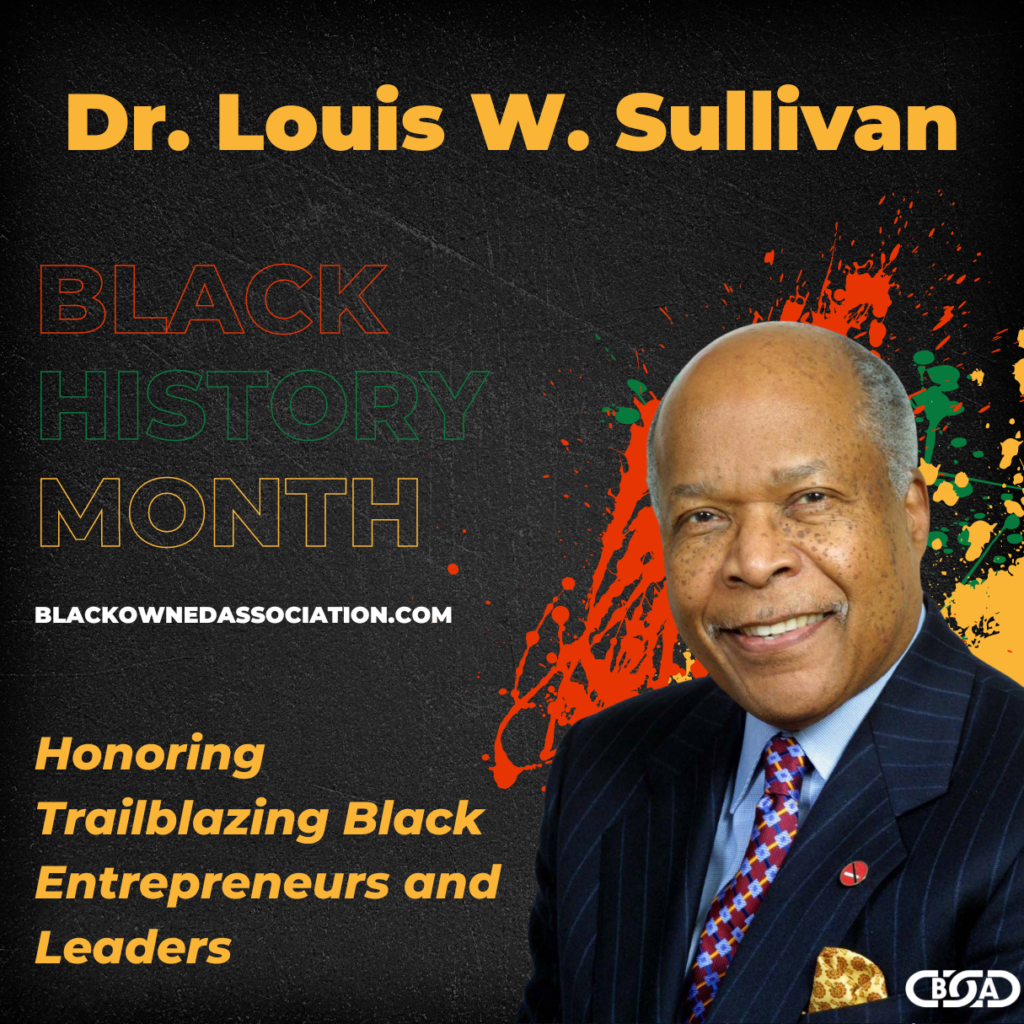
Dr. Louis W. Sullivan is a renowned physician and healthcare administrator who has made significant contributions to the field of medicine. He was born on November 3, 1933, in Atlanta, Georgia, and went on to pursue a career in medicine, ultimately becoming a distinguished professor of medicine and health policy.
Dr. Sullivan received his medical degree from the Morehouse School of Medicine in Atlanta and completed his residency in internal medicine at Meharry Medical College in Nashville, Tennessee. He then went on to complete a fellowship in cardiology at the National Institutes of Health in Bethesda, Maryland.
Throughout his career, Dr. Sullivan has made many important contributions to the field of medicine. In 1989, he was appointed as the Secretary of the Department of Health and Human Services (HHS) by President George H. W. Bush. In this role, he was responsible for overseeing the nation’s public health policies and programs, including the National Institutes of Health, the Food and Drug Administration, and the Centers for Disease Control and Prevention.
One of Dr. Sullivan’s most notable achievements while at HHS was his role in the implementation of the Americans with Disabilities Act (ADA). He worked tirelessly to ensure that people with disabilities had equal access to healthcare services and was instrumental in the passage of the ADA. He also played a key role in the establishment of the Office of Research on Women’s Health and the National Center for Health Care Disparities.
After leaving HHS, Dr. Sullivan continued to be a vocal advocate for public health policies that promote equity and improve health outcomes for all Americans. He has served as the President of Morehouse School of Medicine, and he continues to be an influential voice in the medical community.
Dr. Sullivan’s contributions to the field of medicine have been recognized with numerous awards and honors. He was inducted into the Institute of Medicine of the National Academy of Sciences, and he has received numerous awards for his contributions to public health and medicine, including the Benjamin Rush Award from the American College of Physicians and the Pugsley Medal from the Association of Medical Colleges.
Dr. Louis W. Sullivan is a visionary leader in the field of medicine who has made significant contributions to the nation’s public health policies and programs. His work has improved the lives of millions of Americans and set an example for future generations of healthcare leaders to follow. He is a true icon in the field of medicine and an inspiration to all those who strive to improve health outcomes for all.
7. Percy Lavon Julian
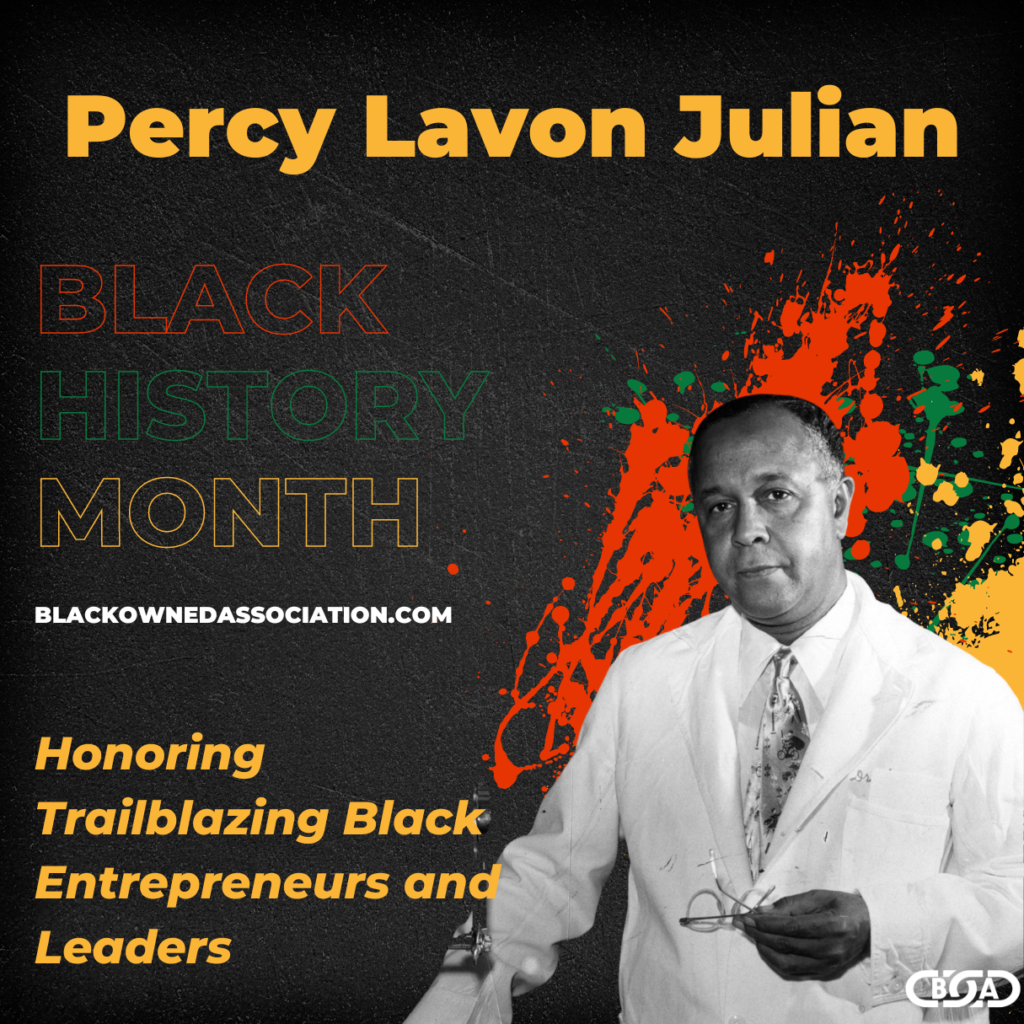
Percy Lavon Julian was a pioneering African-American chemist and researcher who made significant contributions to the fields of chemistry and medicine.
Julian received his undergraduate degree from DePauw University in 1920 and went on to earn a Master’s degree in Chemistry from Harvard University in 1923. Regardless of his academic achievements, Julian faced difficulty finding work in his field due to racism and was unable to secure a job as a chemist until several years later.
In 1935, Julian made a major breakthrough when he discovered a way to synthesize a hormone called cortisol, which is used to treat a variety of medical conditions including rheumatoid arthritis and adrenal gland disorders. This discovery marked a major step forward in the development of cortisone-based drugs and paved the way for further research in the field.
In the years that followed, Julian continued to make important contributions to the field of chemistry, including the synthesis of hormones such as progesterone and testosterone. He also worked on developing new methods for the extraction of soybean oil, which was used in a variety of industrial and consumer products.
Throughout his career, Julian faced significant challenges due to racism and discrimination, including being denied promotions and facing resistance from colleagues. Nonetheless, he remained committed to his work and was recognized for his contributions with numerous awards and honors, including the National Medal of Science, which he received in 1975.
Percy Lavon Julian was a trailblazer in the field of chemistry who made significant contributions to the advancement of medical research and the development of new products. Even through facing significant barriers due to racial discrimination, Julian remained committed to his work and was recognized for his contributions with numerous awards and honors. He continues to be remembered today as a pioneer and an inspiration to future generations of scientists and researchers.
8. George Washington Carver
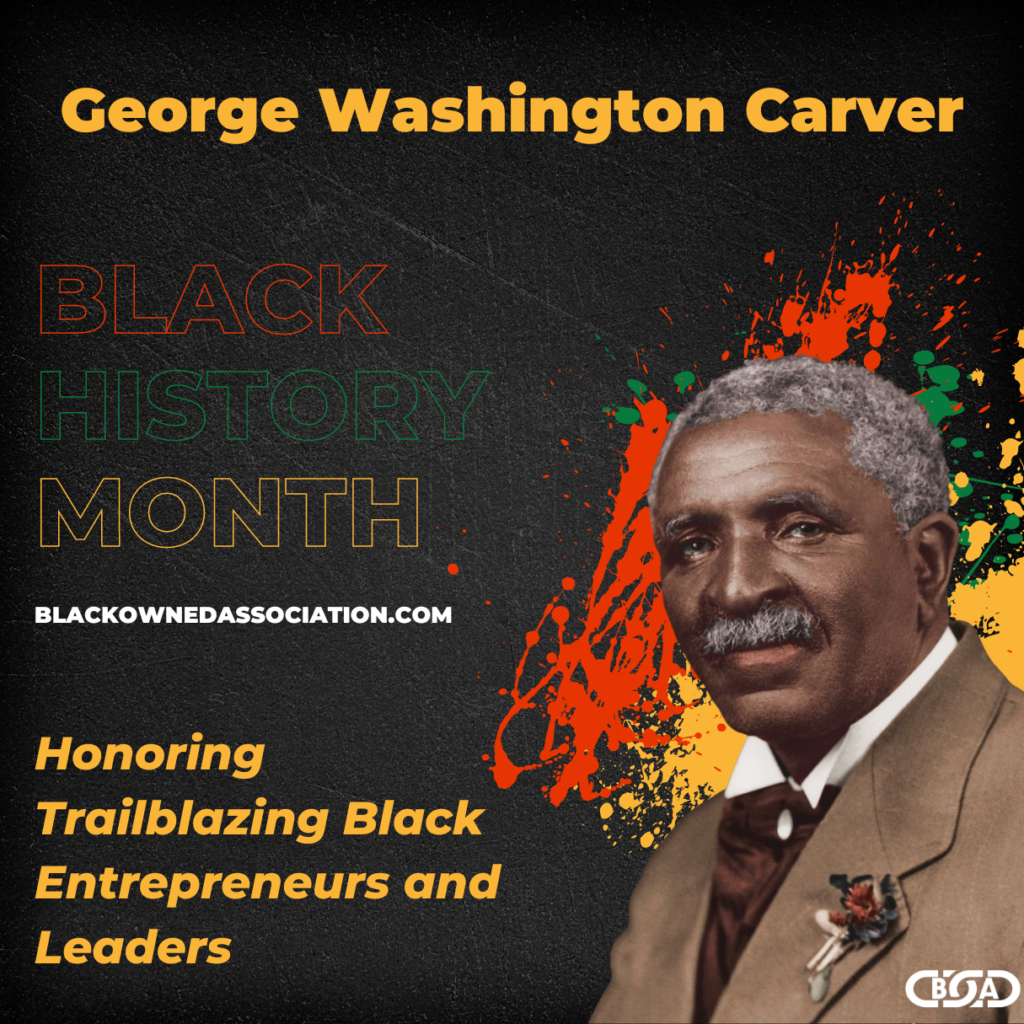
George Washington Carver was an American scientist and educator who is best known for his work with peanuts and sweet potatoes. Born into slavery in Missouri in the mid-1860s, Carver went on to become one of the most prominent agricultural scientists of his time.
Carver’s work with peanuts and sweet potatoes revolutionized the agricultural industry and helped to transform the economy of the southern United States. He discovered over 100 products that could be made from peanuts, including cosmetics, dyes, and even gasoline. He also developed new ways to cultivate sweet potatoes, which were an important food source for many southern families.
Carver’s passion for science and education led him to become a professor of agriculture at the Tuskegee Institute in Alabama. He taught there for 47 years and was known for his innovative teaching methods and his commitment to helping his students succeed. He also made many important contributions to the scientific community, including the development of a new process for making paint from clay and the discovery of a new method for extracting protein from soybeans.
In addition to his scientific achievements, Carver was also known for his strong sense of morality and his unwavering commitment to justice. Throughout his life, he advocated for the rights of African Americans and worked to improve their lives through education and economic development. He was a respected leader in his community and was widely admired for his humility and his devotion to his students.
Today, Carver’s legacy lives on through the countless lives he impacted and the countless industries he helped to transform. He remains an inspiration to scientists and educators all over the world, and is remembered as a true American hero who used his knowledge and passion to make the world a better place.
George Washington Carver was a remarkable individual who used his knowledge and passion to change the world. He remains an inspiration to scientists and educators everywhere and will always be remembered as a true pioneer in the field of agriculture and a champion of justice and equality.
9. Mary McLeod Bethune
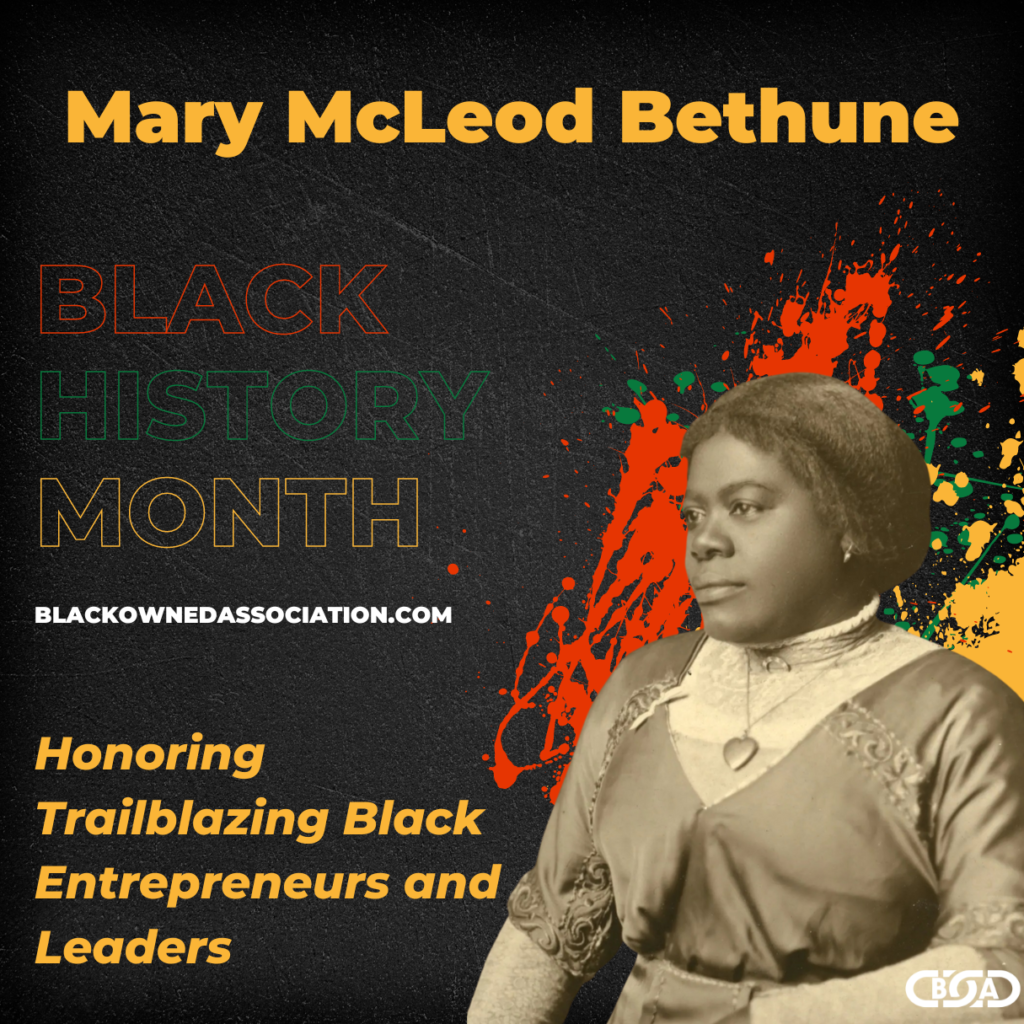
Mary McLeod Bethune was an educator, political leader, and civil rights activist who worked to advance the rights of African Americans during the early 20th century. Born to former slaves in 1875 in South Carolina, she grew up in poverty and worked as a domestic servant to pay for her education. Even though Bethune faced challenges, she went on to found the National Council of Negro Women and serve as a president of the National Association for the Advancement of Colored People (NAACP).
Bethune was a visionary leader who saw education as the key to unlocking the full potential of African Americans. She founded the Daytona Normal and Industrial Institute for Negro Girls in 1904, which later merged with the Cookman Institute for Men to become Bethune-Cookman College. Under her leadership, the school became a leading institution for African American students, offering a rigorous education and preparing them for careers in a wide range of fields.
In addition to her work as an educator, Bethune was a powerful voice for civil rights and equality. She worked tirelessly to secure voting rights for African Americans, and she used her position as a political leader to advocate for better working conditions, fair wages, and equal access to education. She was a close advisor to President Franklin D. Roosevelt, and she used this relationship to further the cause of African American rights.
Bethune never lost sight of her goals or her commitment to the African American community even with facing significant obstacles and opposition. She was a pioneering leader who inspired countless others to work for change, and her legacy continues to be celebrated today as a symbol of courage, determination, and the power of education.
Mary McLeod Bethune was a remarkable woman who dedicated her life to advancing the rights and opportunities of African Americans. Through her work as an educator, political leader, and civil rights activist, she made a lasting impact on the lives of millions of people and helped to lay the foundations for the modern civil rights movement. Her story is a testament to the power of perseverance and the enduring value of education.
10. Fannie Lou Hamer
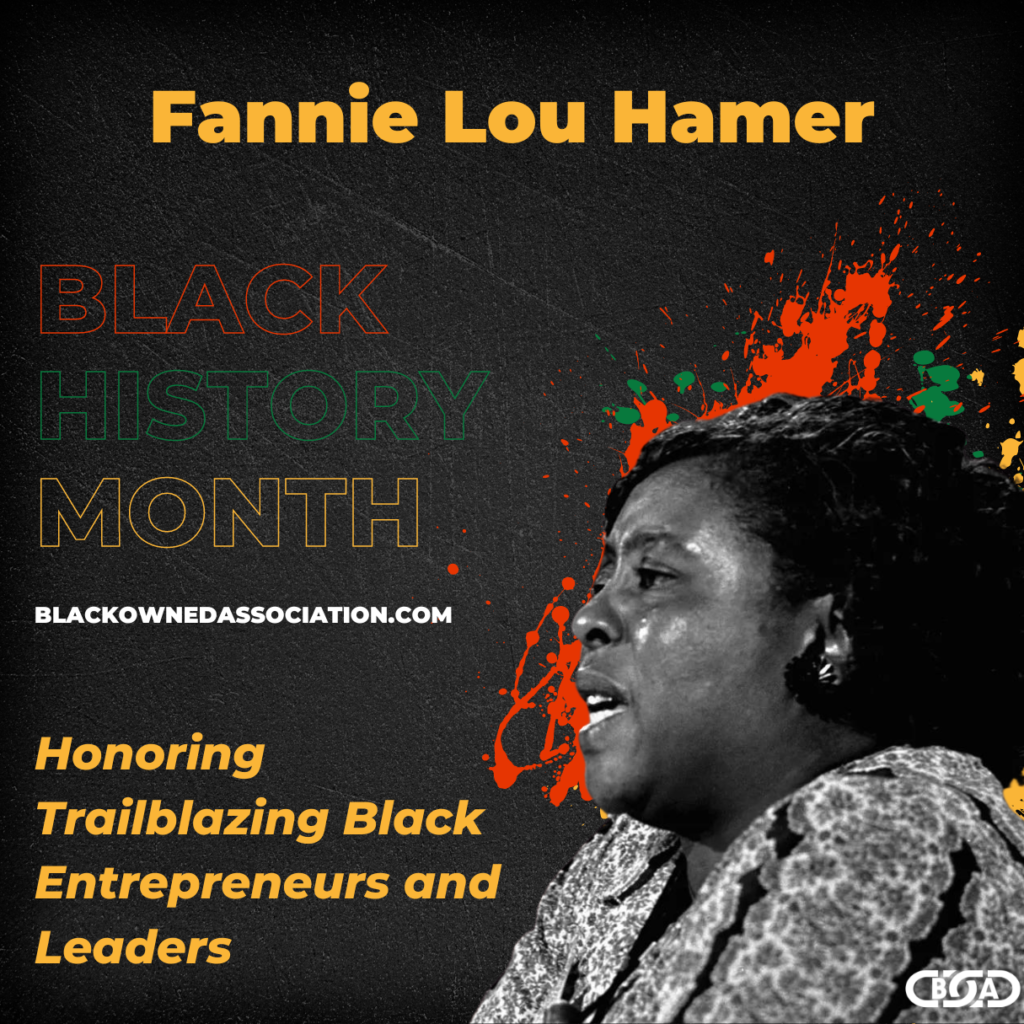
Fannie Lou Hamer was an American civil rights leader and voting rights activist. She was born on October 6, 1917, in Montgomery County, Mississippi, and grew up in poverty on a farm. She became a powerful voice for justice and equality in the South.
Hamer first became involved in the civil rights movement in the early 1960s, when she attempted to register to vote and was beaten by police for her efforts. This event only strengthened her resolve to fight for voting rights for African Americans in the South, and she quickly became an influential leader in the movement.
In 1962, Hamer co-founded the Freedom Democratic Party, which aimed to challenge the all-white Mississippi Democratic Party. The following year, she helped to organize the historic March on Washington, where she was a featured speaker. Her powerful testimony at the Democratic National Convention in Atlantic City, New Jersey, in 1964 brought national attention to the struggle for voting rights in the South and helped to galvanize support for the passage of the Voting Rights Act of 1965.
In addition to her work on voting rights, Hamer was also involved in a number of other civil rights causes. She worked to help African Americans register to vote, helped to establish Freedom Schools, and spoke out against poverty, injustice, and discrimination.
Despite facing numerous obstacles and threats, including arrest and physical violence, Hamer never lost her commitment to the cause of justice. She died on March 14, 1977, at the age of 59, but her legacy lives on through her tireless efforts to secure voting rights for African Americans and to bring about greater equality and justice in the South.
Fannie Lou Hamer was a fearless and inspiring civil rights leader who dedicated her life to the fight for justice and equality. Through her courage and perseverance, she helped to bring about important changes in the South and inspired generations of activists to continue the fight for a more just and equal society.
11. Alain Locke
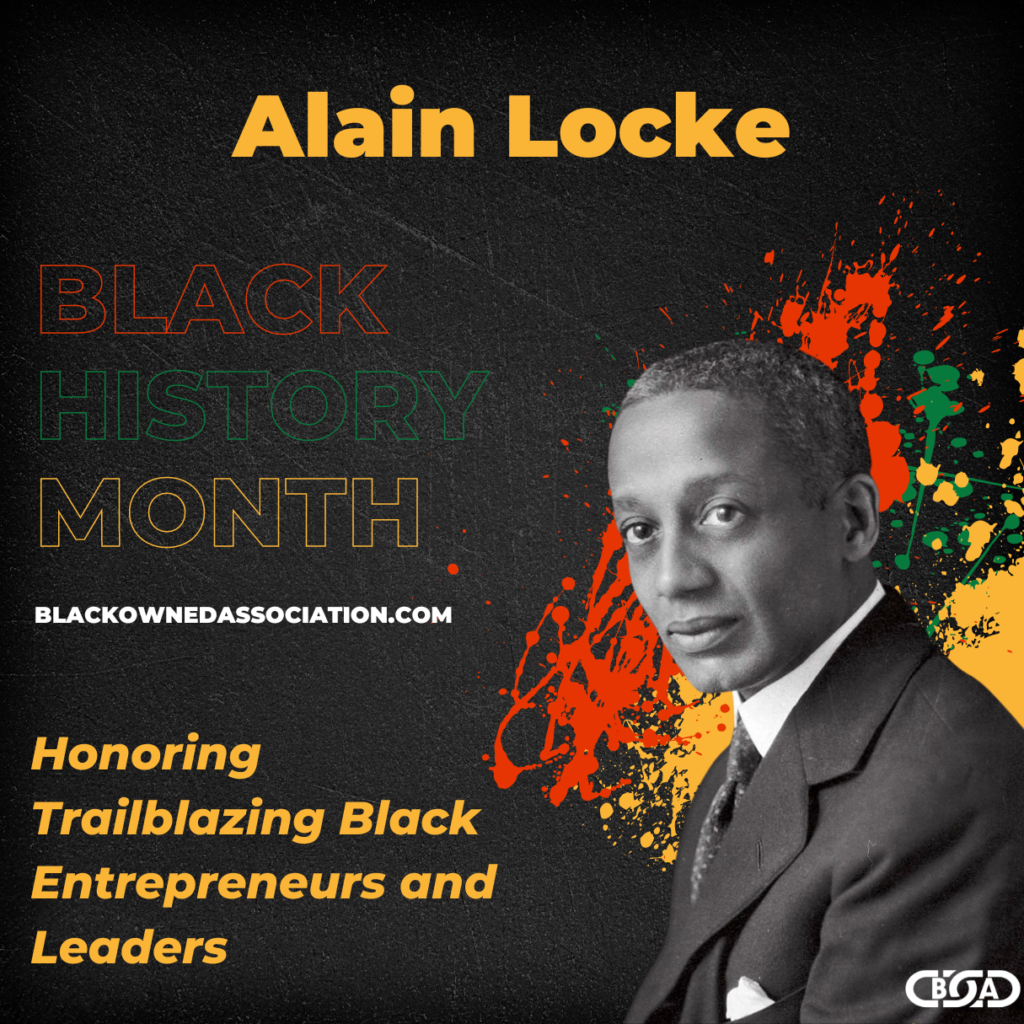
Alain Locke was an American philosopher, educator, and writer who played a significant role in the Harlem Renaissance of the 1920s. Born in Philadelphia in 1885, Locke was the first African American Rhodes Scholar and went on to earn a PhD in philosophy from Harvard University in 1918. He later became the chair of the philosophy department at Howard University in Washington, D.C.
Locke’s intellectual contributions were wide-ranging, but he is best known for his support of the Arts and his advocacy for African American culture. He saw the arts as a means of promoting the recognition and celebration of black culture and helping to combat racial prejudice. In his 1925 anthology “The New Negro,” Locke brought together the works of black writers, artists, and musicians and encouraged them to express their unique experiences and perspectives. This anthology became a defining text of the Harlem Renaissance and helped to establish black cultural identity in America.
Locke’s philosophy was heavily influenced by the work of German philosopher Immanuel Kant, and he sought to apply Kantian principles to the study of race and culture. He believed that cultural values were not fixed or inherent, but rather were constructed by social, historical, and political forces. He saw the potential for cultural change as a way to promote racial equality, and he encouraged African Americans to embrace their own cultural heritage and history.
Locke’s influence extended far beyond the Harlem Renaissance. He was a mentor to a number of important writers and artists, including Langston Hughes, Zora Neale Hurston, and Jacob Lawrence. He also helped to establish the field of African American studies, and his ideas continue to be studied and debated by scholars today.
Alain Locke was a pioneering figure in the promotion of African American culture and a major contributor to the intellectual and artistic ferment of the Harlem Renaissance. His ideas about race, culture, and the arts continue to inspire and inform contemporary debates about race and identity.
12. Bessie Coleman
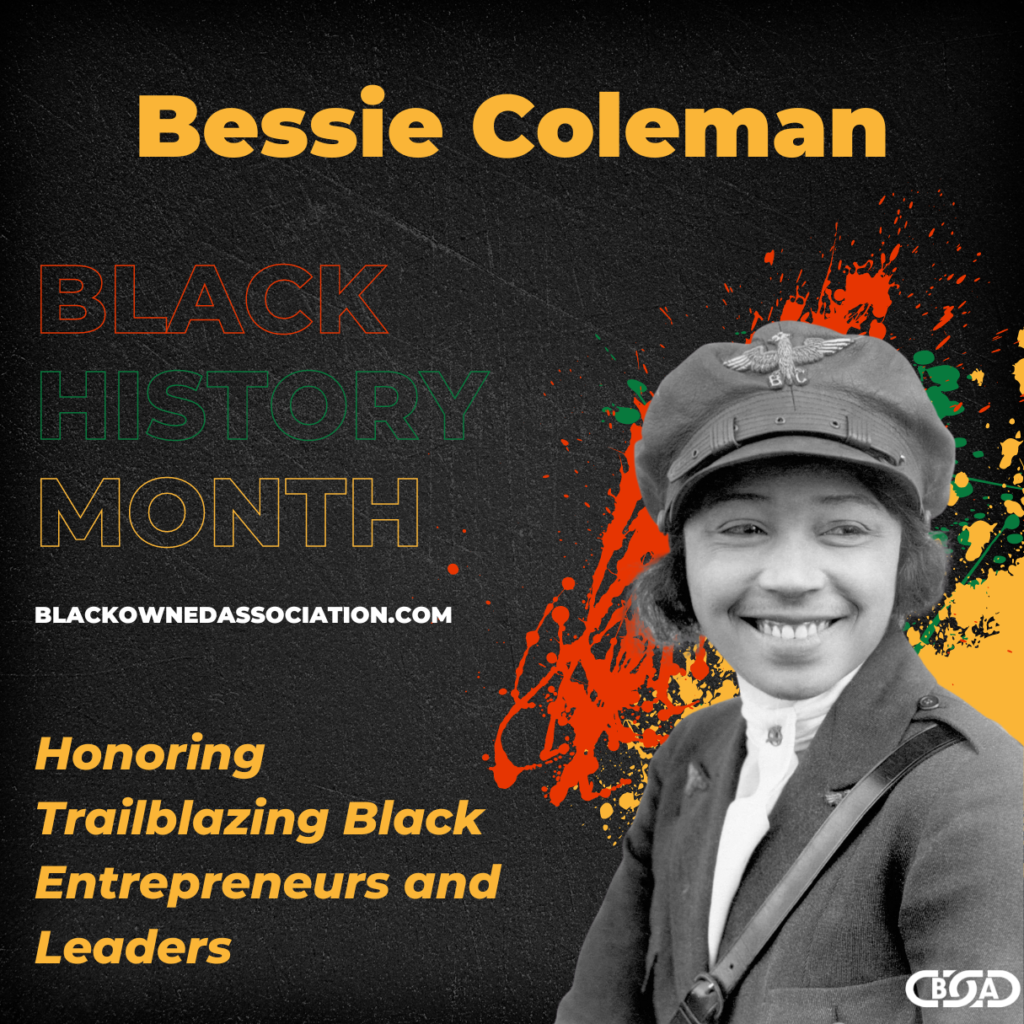
Bessie Coleman was an American aviator and the first African American woman to hold a pilot’s license. Born in Texas in 1892, Coleman faced numerous challenges due to her race and gender, but she never let them stand in the way of her passion for flying.
Coleman’s love of aviation was sparked by her brother, who served in the United States Army during World War I and told her about the exploits of the daring pilots he served with. Although Coleman faced discrimination and limited opportunities in the United States, she was determined to become a pilot. She saved money and enrolled in a flight school in France, where she received her pilot’s license in 1921.
Returning to the United States, Coleman faced further challenges as a female pilot of color, but she refused to be discouraged. Instead, she became a barnstormer, performing daring aerial stunts and acrobatics to crowds around the country. Her death-defying feats and her trailblazing spirit earned her the nickname “Queen Bess.”
Coleman used her platform to challenge the racial and gender barriers of her time. She inspired other African Americans and women to pursue their dreams and push against the limitations imposed on them by society. Her career was relatively short, but Coleman left a lasting impact on the world of aviation and beyond.
Tragically, Coleman’s life was cut short when she died in a plane crash in 1926, just five years after receiving her pilot’s license. However, her legacy lives on, inspiring generations to reach for the skies and never give up on their dreams.
Bessie Coleman was a remarkable woman who defied the odds and made history as the first African American woman to hold a pilot’s license. Her determination, courage, and passion for flying continue to inspire people around the world and remind us that anything is possible if we never give up on our dreams.
13. John H. Johnson
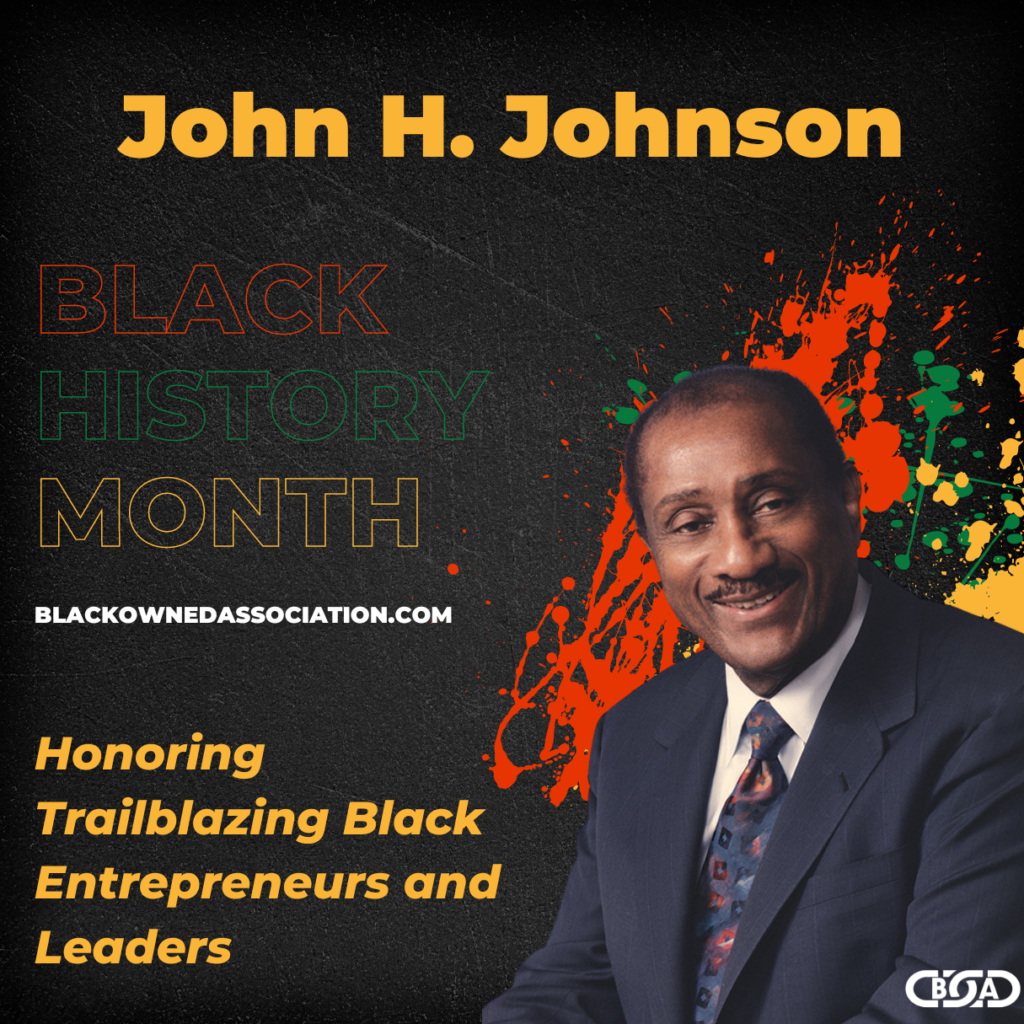
John H. Johnson was a trailblazer in the world of African American media and publishing. Born on January 19, 1918, in Arkansas City, Arkansas, Johnson grew up in a time when segregation and racial discrimination were widespread in the United States. However, he rose to become one of the most influential publishers of the 20th century regardless of the obstacles.
Johnson’s passion for media and publishing began at an early age. As a child, he sold magazines door-to-door and by the age of 18, he had saved enough money to start his own newspaper. In 1942, he founded Negro Digest, a magazine that aimed to provide a voice for the African American community and to showcase the achievements and contributions of African Americans. The publication was an instant success and eventually evolved into Ebony, a leading lifestyle magazine for African Americans that covered a wide range of topics, including fashion, beauty, entertainment, politics, and more.
Throughout his career, Johnson used his media platforms to promote positive images of African Americans and to challenge the negative stereotypes that were prevalent in the media at the time. He was a firm believer in the power of media to shape public opinion and he worked tirelessly to ensure that African Americans were accurately and fairly represented in the media.
In addition to Ebony, Johnson went on to launch Jet, a weekly news magazine that provided in-depth coverage of events and issues affecting the African American community. He also founded the Johnson Publishing Company, which became one of the largest African American-owned publishing companies in the world.
Johnson overcame challenges and obstacles and his hard work and determination paid off. He was inducted into the National Magazine Hall of Fame in 1996 and was awarded the Presidential Medal of Freedom, the highest civilian honor in the United States, in 1996.
John H. Johnson passed away on August 8, 2005, but his legacy lives on. He remains a role model for aspiring entrepreneurs and journalists, and his pioneering spirit continues to inspire future generations. He will always be remembered as a visionary and a champion of the African American community, and as one of the most important figures in the history of American media and publishing.
14. A.G. Gaston
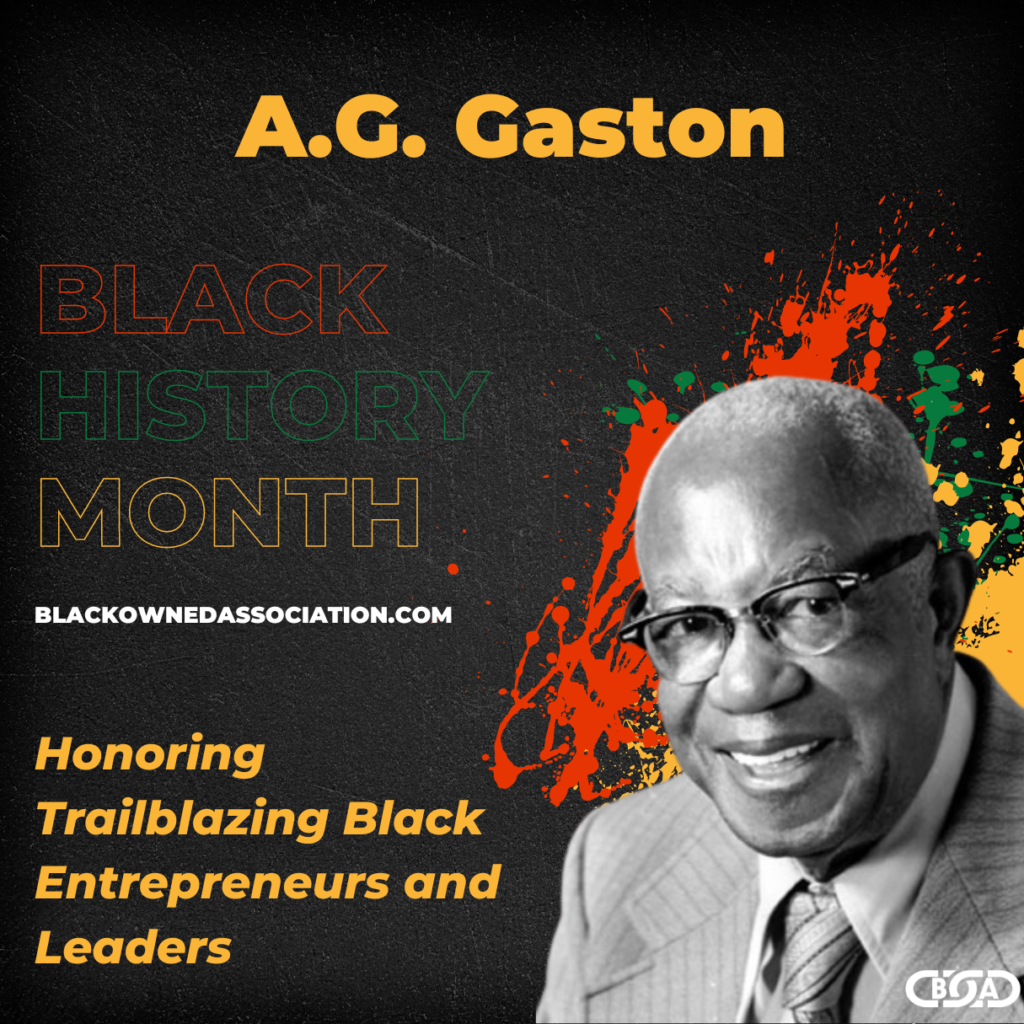
A.G. Gaston was a prominent African American entrepreneur, philanthropist, and civil rights leader who lived from 1892 to 1996. He was born in Birmingham, Alabama, and grew up in poverty. However, Gaston went on to become one of the most successful business owners of his time, and his accomplishments made him a beloved figure in the African American community.
Gaston’s business career began when he started a funeral home in Birmingham. This was a time when many African Americans were not allowed to use white-owned funeral homes, so Gaston’s business provided a much-needed service. Over time, Gaston expanded his business interests, and by the mid-20th century, he owned a number of hotels, insurance companies, and other businesses.
In addition to his business success, Gaston was also deeply involved in the civil rights movement. He was a close friend of Dr. Martin Luther King Jr. and other leaders in the movement, and he used his wealth and influence to support their efforts. For example, he provided financial support to the Alabama Christian Movement for Human Rights, and he also provided funding for the Birmingham Civil Rights Institute.
Gaston was also a generous philanthropist, and he gave generously to many causes throughout his life. He was particularly committed to improving the lives of African Americans, and he established the A.G. Gaston Boys and Girls Club to provide young people with a safe and supportive environment.
Even with his many accomplishments, Gaston was often met with resistance and discrimination because of his race. He faced numerous challenges throughout his life, but he never lost his determination or his commitment to making the world a better place. His legacy continues to inspire people today, and he is remembered as a pioneering business leader and a steadfast advocate for justice and equality.
A.G. Gaston was a true American hero. His entrepreneurial spirit, philanthropic generosity, and commitment to the civil rights movement have left a lasting impact on the world, and he will always be remembered as a trailblazer and a champion for the African American community.
15. Elijah McCoy
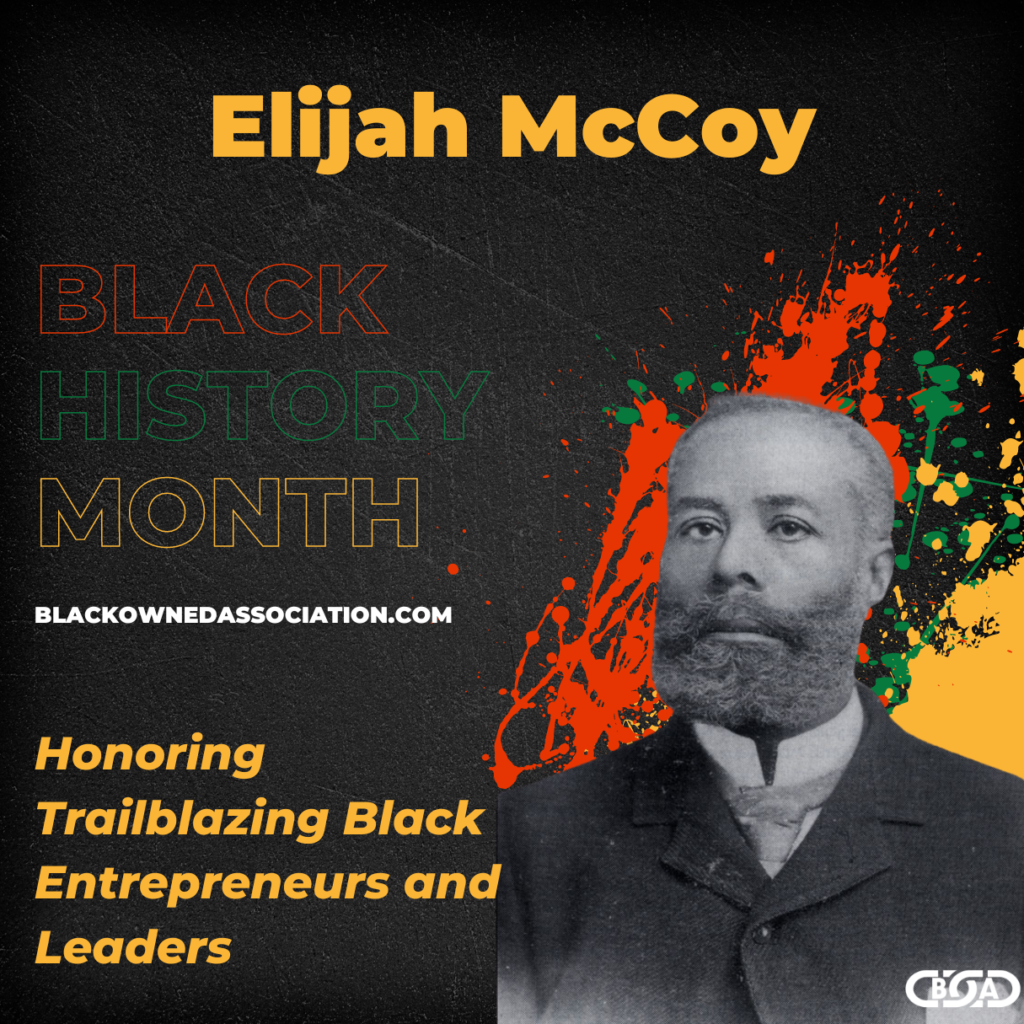
Elijah McCoy was a Canadian-American inventor and engineer born in 1844. He is best known for his 57 patented inventions, many of which improved the efficiency and productivity of the railway industry. He is often referred to as the “real McCoy”, which is an expression that has come to mean “the real thing”.
McCoy was born in Colchester, Ontario, Canada to parents who had escaped slavery in Kentucky. He grew up with a passion for mechanics and engineering, and went on to study mechanical engineering in Edinburgh, Scotland. After graduation, he worked as a fireman and oiler on the Michigan Central Railroad, where he noticed that the lubrication systems on the trains were inefficient and unreliable.
Inspired by this observation, McCoy set to work on designing a better lubrication system. In 1872, he patented a “lubricating cup” that automatically dispensed oil to the moving parts of a train engine as it ran. This device greatly reduced friction and wear on the engine, and improved its efficiency and performance.
This invention was so successful that it was widely adopted by railroads all over the world, and made McCoy a household name in the railway industry. He went on to develop many other innovative products and inventions, including a folding ironing board, a combination lock, and a self-oiling crank.
McCoy has any inventions, but he still faced many challenges as a black inventor in the late 19th and early 20th centuries. He struggled to get his patents recognized and enforced, and was often met with skepticism and discrimination from potential customers and investors. Nevertheless, he persevered and continued to innovate, earning a reputation as one of the most important and influential inventors of his time.
Today, Elijah McCoy is remembered as a trailblazer and an inspiration to all who strive for excellence in their chosen field. His legacy continues to inspire engineers, inventors, and entrepreneurs all over the world, and serves as a testament to the power of hard work, perseverance, and the relentless pursuit of progress.
16. William H. Hastie
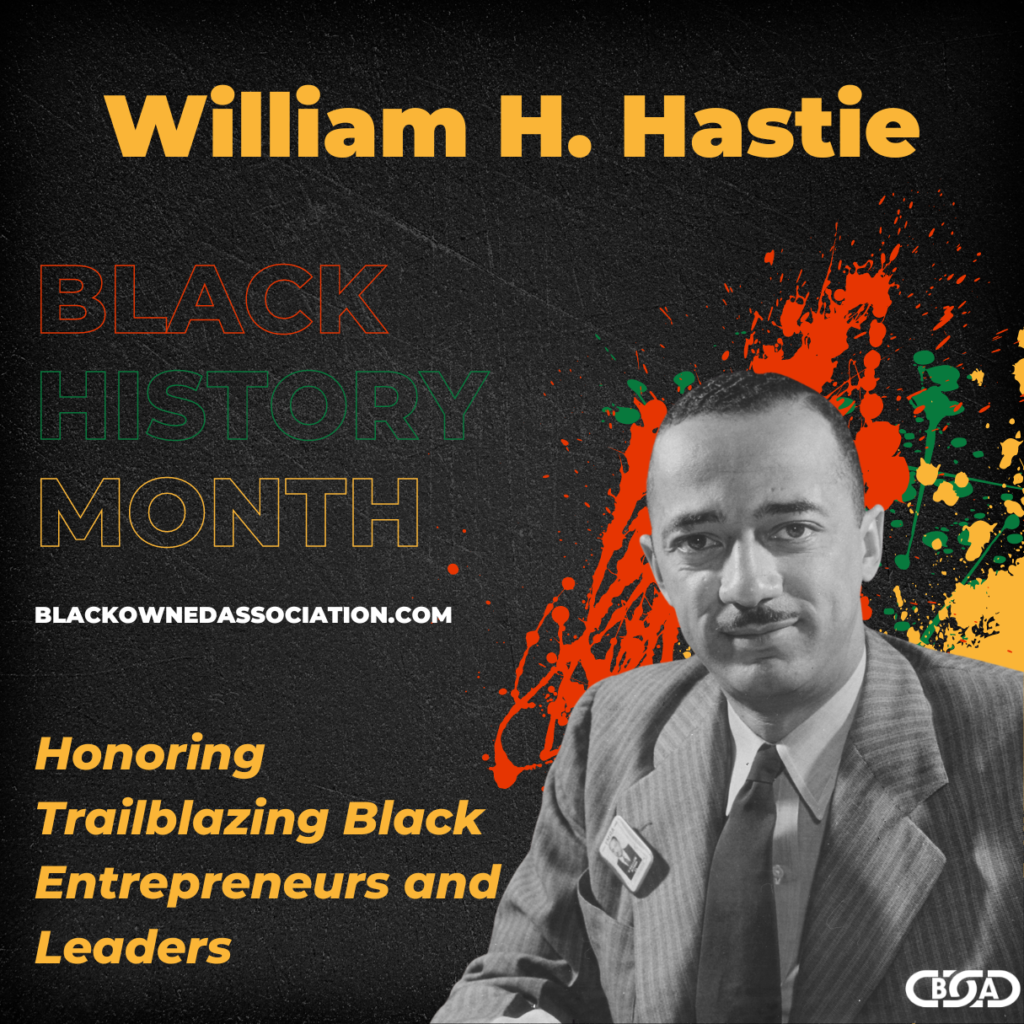
William H. Hastie was an American attorney, judge, and educator. He was born in Knoxville, Tennessee on November 17, 1904 and grew up in the racially segregated South. However, Hastie still became a trailblazer in the fight for civil rights and equality in America.
Hastie earned his undergraduate degree from Amherst College in Massachusetts and later graduated from Harvard Law School. He worked as a private practice attorney in New York City before becoming a federal judge in the Virgin Islands in 1937. In 1939, he became the first African American to serve as a federal judge.
In 1946, Hastie resigned from the bench to become a professor at Howard University School of Law in Washington, D.C. He taught there for 13 years and became the first African American to hold a full-time faculty position at an accredited law school.
Hastie’s dedication to civil rights extended far beyond his work as a judge and educator. He served as an advisor to President Franklin D. Roosevelt on civil rights issues and was a member of the legal team that argued the landmark case of Brown v. Board of Education before the U.S. Supreme Court. This case ultimately led to the end of segregation in public schools and was a major victory for the civil rights movement.
In addition to his legal work, Hastie was also an active member of various civil rights organizations. He served as the national president of the National Association for the Advancement of Colored People (NAACP) and was a founding member of the Leadership Conference on Civil and Human Rights.
Throughout his life, Hastie remained committed to advancing equality and justice for all people. He died on April 14, 1976 in Philadelphia, Pennsylvania, but his legacy lives on as a symbol of courage, determination, and unwavering commitment to the cause of civil rights.
William H. Hastie’s contributions to the field of law and the civil rights movement make him a true American hero. His life serves as a powerful reminder of the incredible impact that one person can have when they are driven by a sense of purpose and a commitment to making the world a better place.
17. Charles Henry Turner
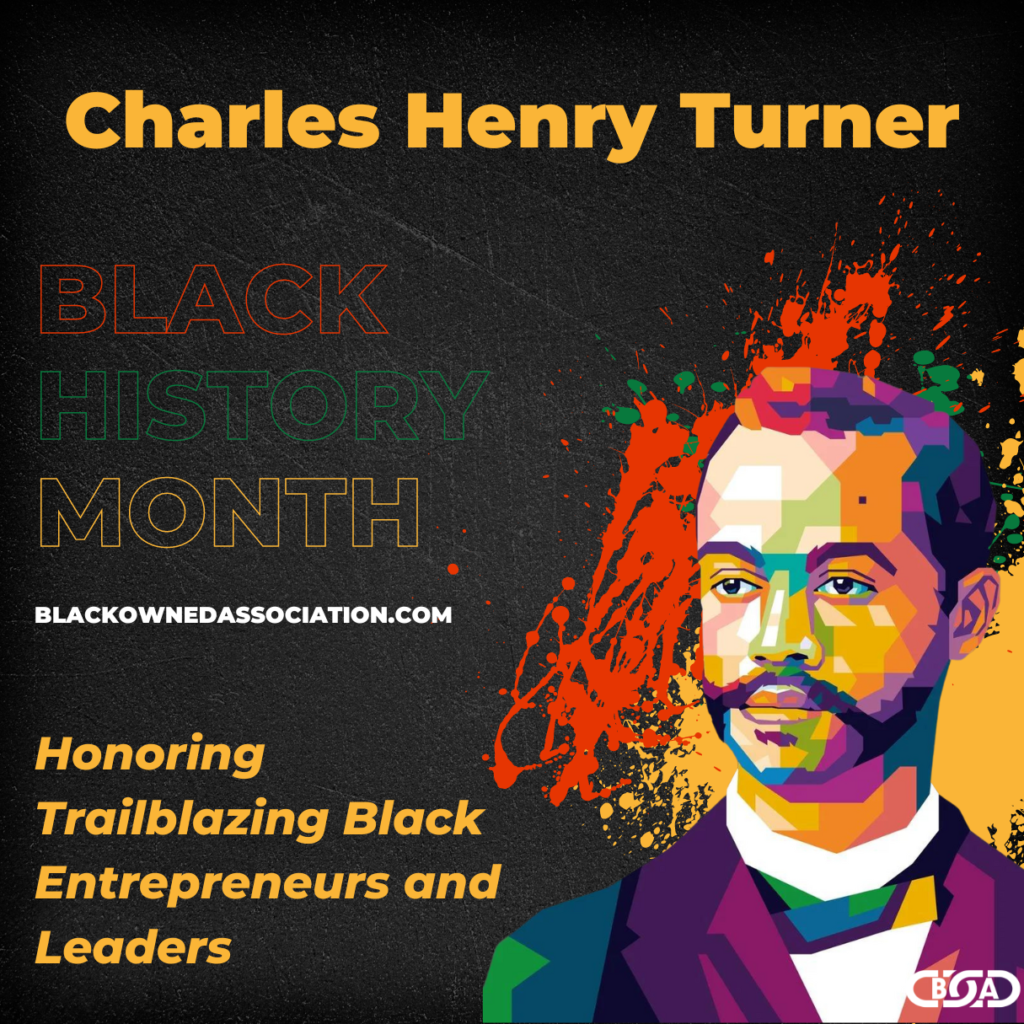
Charles Henry Turner (1867-1923) was an African American scientist and educator who made significant contributions to the field of entomology and animal behavior. He was born into slavery in Cincinnati, Ohio, but went on to earn a PhD from the University of Chicago, making him one of the first African Americans to receive a PhD in biology.
Turner’s research focused on the behavior and sensory abilities of insects and other invertebrates. He was one of the first scientists to study the behavior of insects and to demonstrate their ability to learn and remember. He also showed that insects have a sophisticated sense of touch and can detect light, color, and movement.
One of Turner’s most notable contributions was his discovery that honeybees have the ability to recognize different colors and shapes, and can use this information to navigate and find nectar. This was a groundbreaking finding at the time and challenged the prevailing belief that insects were simple creatures with limited sensory abilities.
In addition to his scientific work, Turner was also an advocate for education and equality. He was a dedicated teacher who worked to improve educational opportunities for African Americans and served as a mentor to many students. He was a member of the National Association for the Study and Teaching of Folklore, which sought to preserve African American cultural heritage, and he was also a member of the National Association for the Study of Negro Life and History.
Turner’s legacy continues to inspire scientists and educators today. He was a pioneering figure in the field of entomology and his work helped to lay the foundation for the modern study of animal behavior. He was a true trailblazer who broke down barriers and opened up new avenues of research, regardless of the challenges he faced as an African American scientist in a time of segregation and discrimination.
Charles Henry Turner was a remarkable scientist and educator who made important contributions to the field of entomology and animal behavior. He was a pioneer who broke down barriers and inspired others to pursue their passions, and his legacy continues to inspire and motivate scientists and educators today.
18. Ernest E. Just
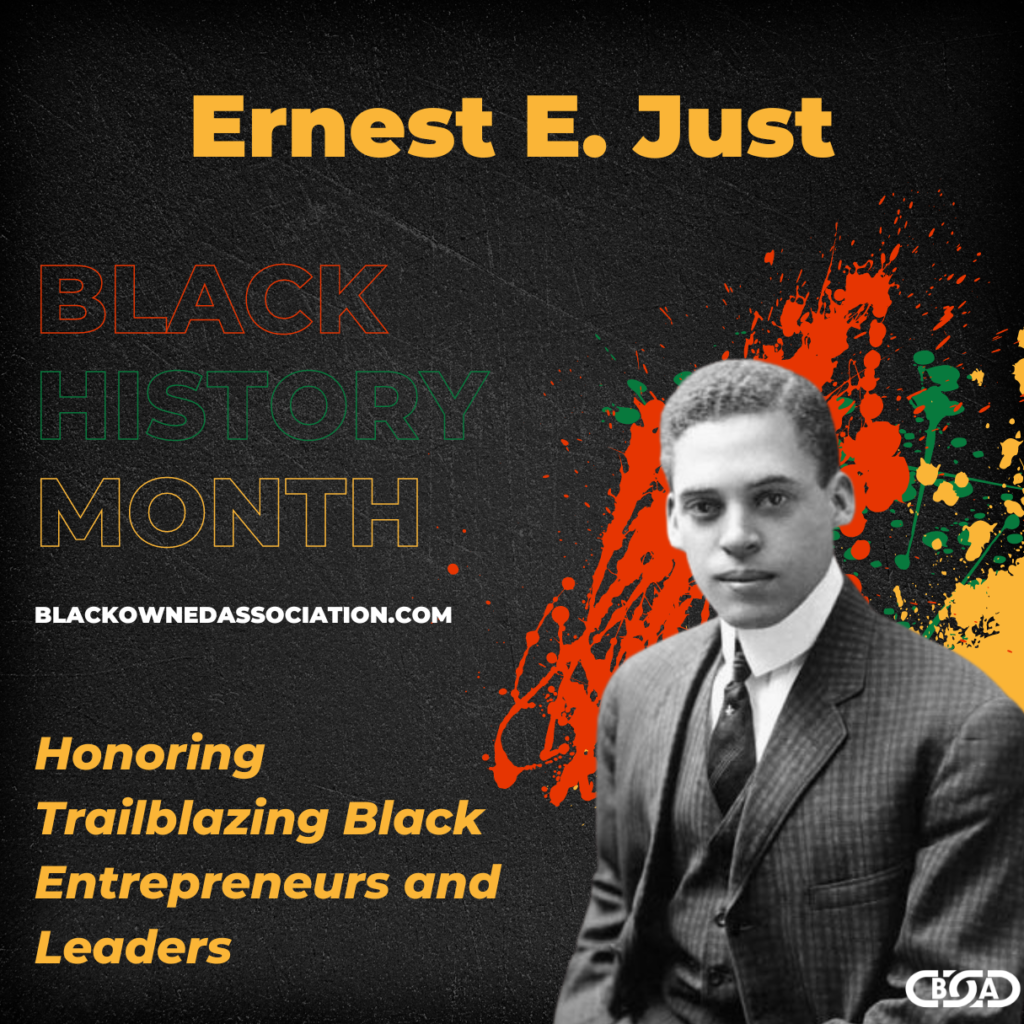
Ernest Everett Just was an African American biologist and educator, born on August 14, 1883, in Charleston, South Carolina. Just is known for his pioneering research in the field of marine biology, particularly in the area of cell division and fertilization.
Just’s early life was marked by a strong interest in science and education, which he pursued by obtaining his bachelor’s and master’s degrees from Dartmouth College. In 1916, he received a PhD in biology from the University of Chicago, where he conducted research on the role of calcium in cell division.
Just’s scientific work focused on the fertilization process of marine organisms, such as sea urchins and starfish. He discovered that the presence of calcium ions is critical for the fertilization process to occur, and he developed a technique to isolate the egg from the surrounding jelly layer. This discovery helped to further the understanding of cell division and fertilization in many species.
In addition to his scientific achievements, Just was also a strong advocate for social justice and education. He was a member of several organizations, including the National Association for the Study and Teaching of Eugenics, which aimed to improve the human race through selective breeding. Just was also a vocal critic of racism and segregation, and he worked tirelessly to promote equality and education for African Americans.
Unfortunately, Just’s life was cut short by illness. He died on October 27, 1941, in Washington, D.C. Today, Just’s legacy lives on through the numerous scientists and educators who have been inspired by his work and dedication to scientific research and social justice.
Ernest Everett Just was a pioneering biologist and educator, who made significant contributions to the field of marine biology and to the advancement of equality and education for African Americans. He remains an inspiring figure for scientists and advocates for social justice alike.
Featured Black-Owned Businesses
Bifties Gifts 
Bifties is an e-commerce store that allows individuals to be social by sending a gift to others featuring…
- New York
- Personalized Gifts
- +4 Corporate Gifts, Stationary, Online Store, Woman-Owned Business
Boujee Hippie 
Serving BAWDY Since 2019. Detox. Fatburner. Shapewear.
- 3160 Commonwealth Dr
- Clothing & Accessories
- +3 Beauty, Skin Care, Online Store
Black-Owned Businesses Offering Deals & Promotions
hella awkward 
Looking to embrace excitement and foster deeper connections with friends and loved ones? Say hello to "hella…
- New York City
- Games & Entertainment
- +1 Adult 18+ Only
Mint Monroe Beauty 
Get Minted
- Middlebelt Road
Filedaria 
Filedaria was created as a solution to the frustrations of women with naturally curly and Afro-Textured…
- 116 Bronte Road
Be Rooted 
Hello and Welcome to Be Rooted! We are an inclusively designed stationery brand the helps our customers…
- Atlanta
- Stationary
- +1 Online Store
NURILENS 
See the Lens of Your Purpose
- Baltimore Avenue
Artanis Home 
Artanis Home Journey At Artanis Home in Denver Metro, we're proud of our family-run roots, established back…
- 2331 W Hampden Ave #138
Boujee Hippie 
Serving BAWDY Since 2019. Detox. Fatburner. Shapewear.
- 3160 Commonwealth Dr
- Clothing & Accessories
- +3 Beauty, Skin Care, Online Store
Herbal Goodness 
Nature's Super Foods Pure & Simple.
- 2150 South Central Expressway
- Health & Wellness
- +4 Food, Beverages, Woman-Owned Business, Online Store
Jojo Shoes 
Black-owned shoe brand with shoes that are designed for classy and stylish women. Shoe sizes 5 to 12. Plus…
- 443-851-6204
- Beaver Street
- Clothing & Accessories
- +2 Shoes, Online Store
IvyReina.com 
Unleash your inner queen
- Grand Prairie
- Clothing & Accessories
- +2 Online Store, Plus Size



